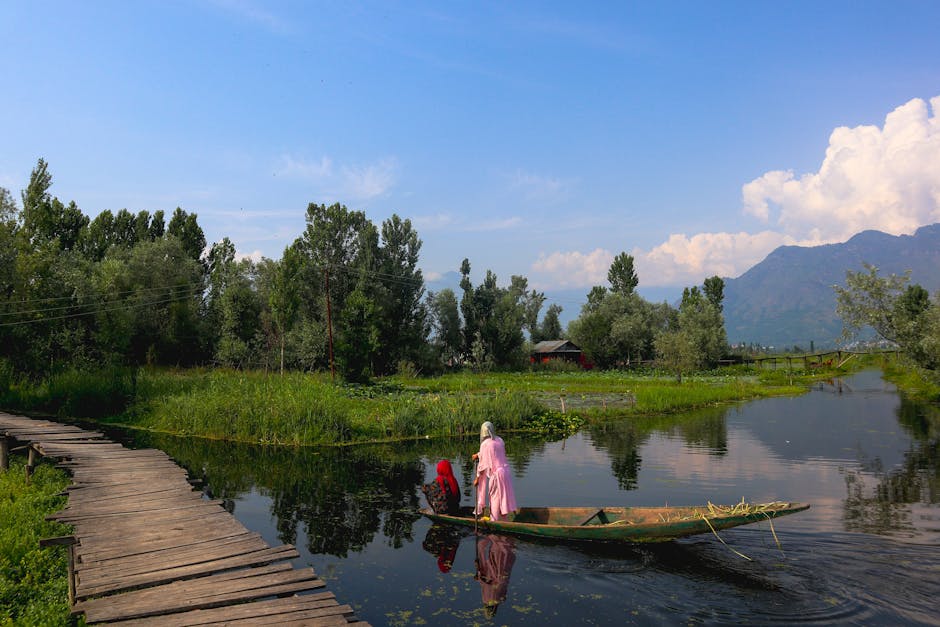The Benefits of Responsible Tourism for Local Ecosystems
Hello fellow travelers! As someone who loves exploring new places and experiencing different cultures, I have always been passionate about responsible tourism. In simple terms, responsible tourism is about being mindful of the impact our travels have on the environment and the local communities. And one of the most significant aspects of responsible tourism is its positive effects on local ecosystems. In this blog post, I’ll be sharing with you all the benefits of responsible tourism for local ecosystems and how we can all contribute to preserving these beautiful natural habitats.
Preservation of Biodiversity
One of the most crucial benefits of responsible tourism for local ecosystems is the preservation of biodiversity. When we travel responsibly, we make a conscious effort to minimize our impact on the environment. This includes following designated trails, not disturbing animals or their habitats, and properly disposing of waste. By doing so, we can ensure that the delicate balance of the ecosystem is not disrupted, and the diverse flora and fauna can thrive.
For instance, when I visited the Galapagos Islands, I was amazed to see how the government has implemented strict regulations for responsible tourism. As a result, the islands’ unique species, such as the Galapagos giant tortoise and marine iguana, are still thriving, and the islands’ natural beauty remains untouched.
Supporting Local Conservation Efforts
Responsible tourism also has a significant impact on local conservation efforts. Many destinations rely on tourism as a source of income, and responsible tourists can contribute to the sustainable development of these communities. By choosing to stay at eco-friendly accommodations, supporting local businesses, and participating in responsible wildlife tours, we can directly support conservation efforts.
I remember my trip to Costa Rica, where I stayed at a sustainable eco-lodge owned and operated by the local community. The lodge was built using locally sourced materials, and they also had various conservation projects in place, such as a sea turtle nesting program. Not only did I have a fantastic experience, but I also felt good knowing that my visit was helping the local community and their conservation efforts.
Preserving Natural Resources
Another advantage of responsible tourism for local ecosystems is the preservation of natural resources. When we travel responsibly, we make an effort to reduce our carbon footprint and conserve resources such as water and energy. This can be as simple as turning off the lights and air conditioning when leaving our hotel room or taking shorter showers.
In places like Iceland, where the demand for hot water from tourists is high, responsible tourism practices, such as using geothermal energy and taking shorter showers, are crucial for preserving the country’s natural resources. By being mindful of our actions, we can help reduce the strain on these resources and ensure their sustainability for future generations.
Education and Awareness
Responsible tourism also promotes education and awareness about the importance of protecting local ecosystems. By traveling responsibly, we can learn about the environment and the challenges it faces, such as climate change and wildlife conservation. This knowledge can then be shared with others, creating a ripple effect of responsible tourism practices.
During my trip to Thailand, I had the opportunity to volunteer at a sea turtle conservation project. Not only did I learn about the threats faced by these majestic creatures, but I also got to educate visitors about the importance of responsible tourism and how they could help protect the turtles’ nesting sites. It was heartwarming to see how many visitors were inspired to make a difference.
How You Can Contribute
Now that you know all about the benefits of responsible tourism for local ecosystems, you may be wondering how you can contribute. Here are a few simple ways you can make a positive impact on your next trip:
– Choose eco-friendly accommodations that have sustainable practices in place.
– Respect the natural environment and follow designated trails.
– Avoid single-use plastics and bring a reusable water bottle.
– Support local businesses and buy souvenirs from local artisans.
– Choose responsible wildlife tours that prioritize animal welfare.
– Learn about the culture and customs of the destination and be respectful of them.
Conclusion
In conclusion, responsible tourism has many benefits for local ecosystems, and as travelers, we have a responsibility to minimize our impact on the environment. By practicing responsible tourism, we can contribute to the preservation of biodiversity, support local conservation efforts, and help preserve natural resources. So, let’s all do our part and make a positive impact on the places we visit. Happy travels!




